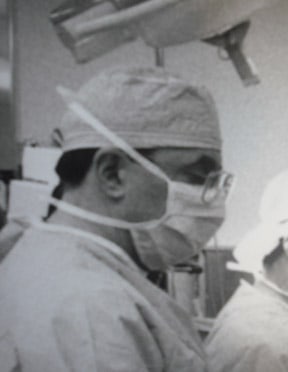Written by Physician’s Weekly Blogger, Skeptical Scalpel
In February, the New York Times published an article about this subject. Several vignettes depicted the plight of medical school graduates who were unable to obtain positions in residency programs which prevents them from becoming licensed physicians despite having a medical degree.
They are having difficulty paying off medical school loans as high as $300,000 and are unable to find any jobs related to their education.
Almost 20 years ago, the Association of American Medical Colleges warned of an Impending shortage of 54,100 to 139,000 doctors by 2033. Since then, many new medical schools opened and existing schools increased class sizes. Offshore schools, mostly in the Caribbean area, continue to proliferate.
Unfortunately, the number of residency training positions did not keep up because in 1997, the federal government capped the number of slots it funded. Recently, Congress passed a bill phasing in 1000 new Medicare-funded residency positions over the next 5 years.
Expanding the number of residency training programs is not as simple as it seems. As I pointed out in 2014, hospitals must have dedicated faculty, a willingness to do research, an adequate number and variety of cases, and more.
The issue is not only too few positions. Too many medical schools graduate too many physicians. The problem is particularly acute in the Caribbean where there are at least 49 offshore medical schools, some turning out hundreds of doctors per year.
According to 2021 data from the National Resident Matching Program [NRMP], the number of applicants to residency programs has increased by 5543 from 43,157 in 2017 to 48,700 in 2021. Of the 2021 applicants, 15,347 were either unmatched, withdrew, or submitted no rank list.
The total number of first-year positions offered was 35,194 with only 1841 going unfilled in the match. This means that the 15,347 applicants who had no positions were competing for the 1841 unfilled positions.
US medical school graduating seniors matched for 18,435 positions; US MD graduates from previous years filled 806. Osteopathic seniors and graduates filled 6597. US citizen international medical graduates [IMGs], primarily from offshore schools, filled 3152 positions and non-US citizen IMGs filled 4356 slots.
I do not foresee the day when there will be enough residency slots to accommodate every medical school graduate.
The Times article said “… many applicants, especially those coming from families unfamiliar with the intricacies of medical training, say they aren’t warned of the low match rates for international medical students.”
Dr. William W. Pinsky, the chief executive of the Educational Commission for Foreign Medical Graduates, said, “unfortunately, there are schools that perhaps exaggerate a bit on their websites in terms of the success of their graduating students.” That’s putting it mildly.
In a 2014 blog post, I said, “If you go to an offshore school, the best case scenario is that you’ll have about a 50% or perhaps slightly better chance of matching to a residency position in any specialty.” These odds may be worse if you choose a lesser-known [than Ross or St. George’s] school.”
Things have not improved since then. The Times quotes “some experts” who say the match rate for IMGs is 61%. However, this “does not account for medical students who receive no interview offers.” If they are counted, the IMG match rate “may drop as low as 50%.”
So let this serve as yet another warning. Are you prepared to wager thousands of dollars and years of your life for a 50-50 chance of becoming a practicing physician?
Related posts:
What are the residency prospects for graduates of offshore medical schools?
What are the residency prospects for graduates of offshore medical schools? 2016 update
More about offshore med schools and residency prospects
Shortage of doctors in the future? Maybe
Caribbean medical schools: A look inside
The lost sheep: They’re MDs but can’t find residency positions
Expanding surgical residency training programs—good idea?
Unmatched Graduate: “Med Schools to Blame”
Skeptical Scalpel is a retired surgeon and was a surgical department chair and residency program director for many years. He is board-certified in general surgery and a surgical sub-specialty and has re-certified in both several times. For the last 9 years, he has been blogging at SkepticalScalpel.blogspot.com and tweeting as @SkepticScalpel. His blog has had more than 3,700,000 page views, and he has over 21,000 followers on Twitter.



 SkepticalScalpel
SkepticalScalpel